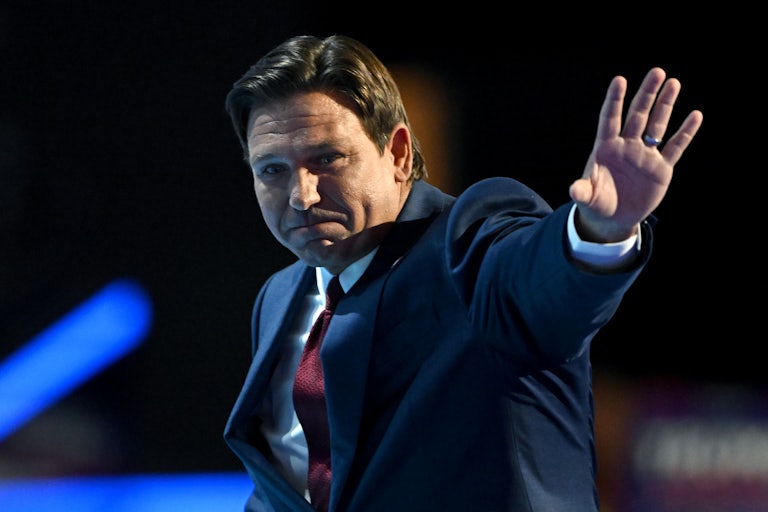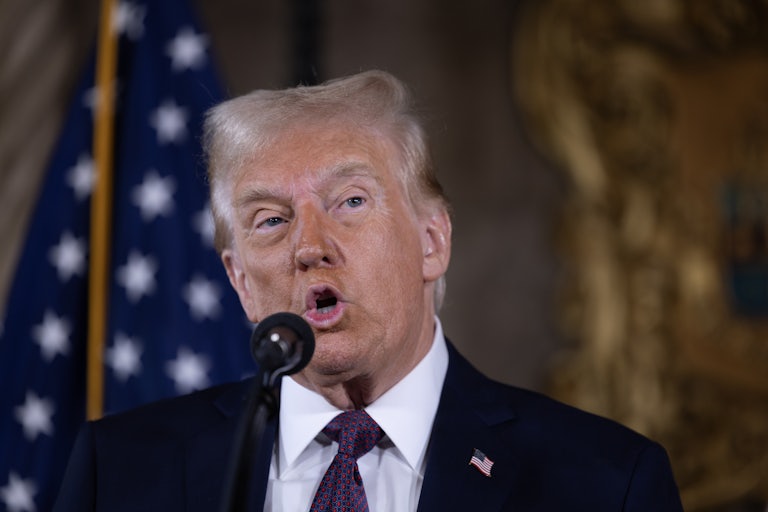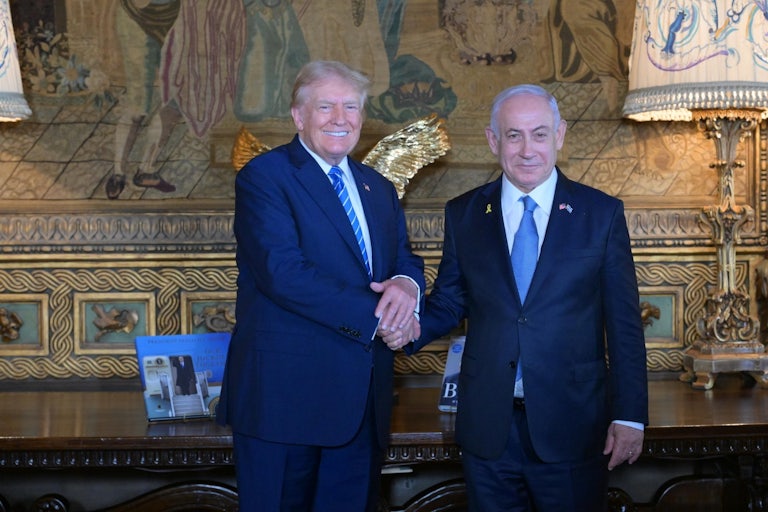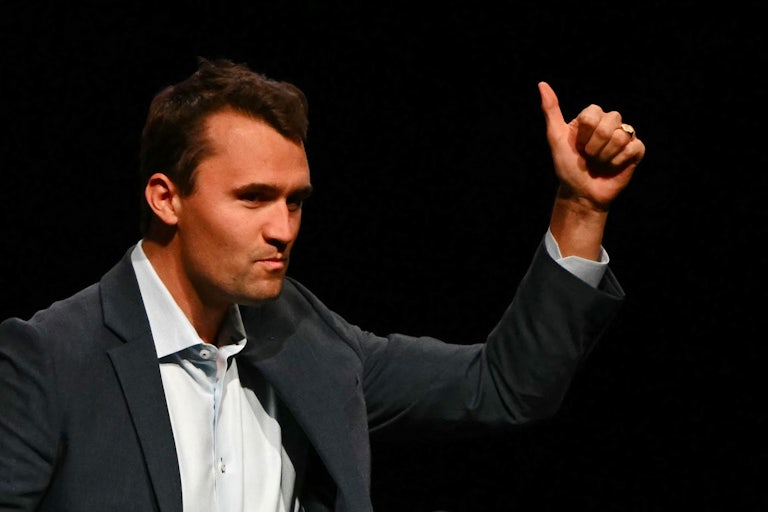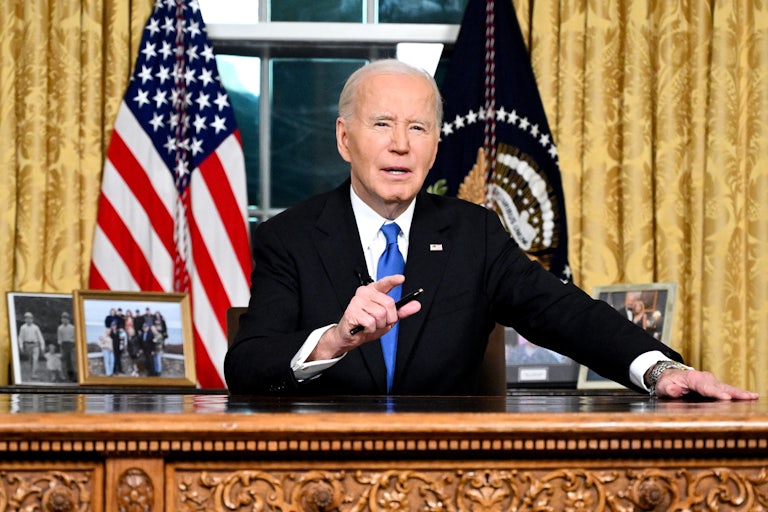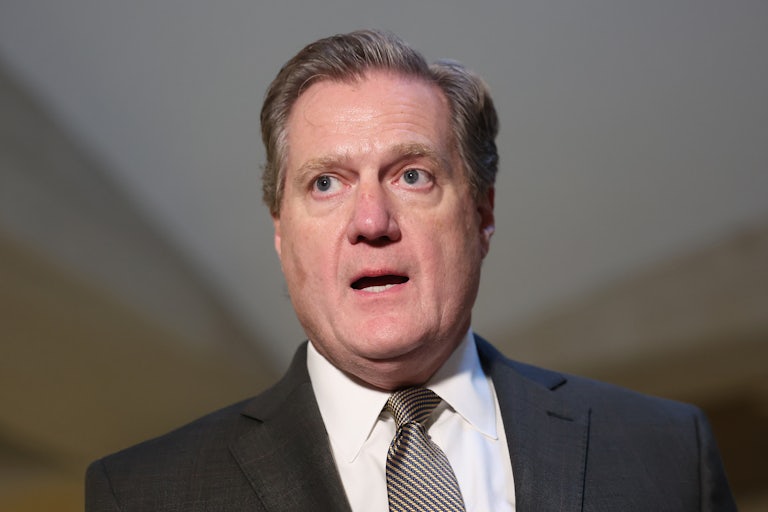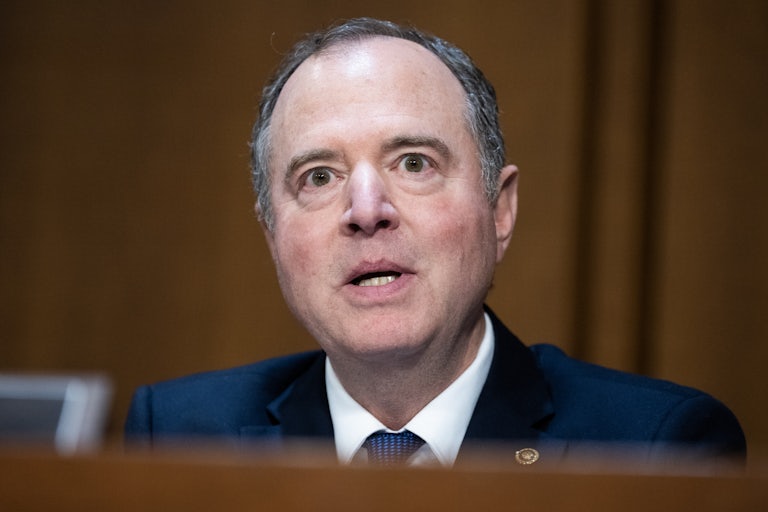Trump’s EPA Pick Flunks Science Quiz in Confirmation Hearing
Lee Zeldin was struggling to answer basic questions about climate change in a foreboding sign for the agency.
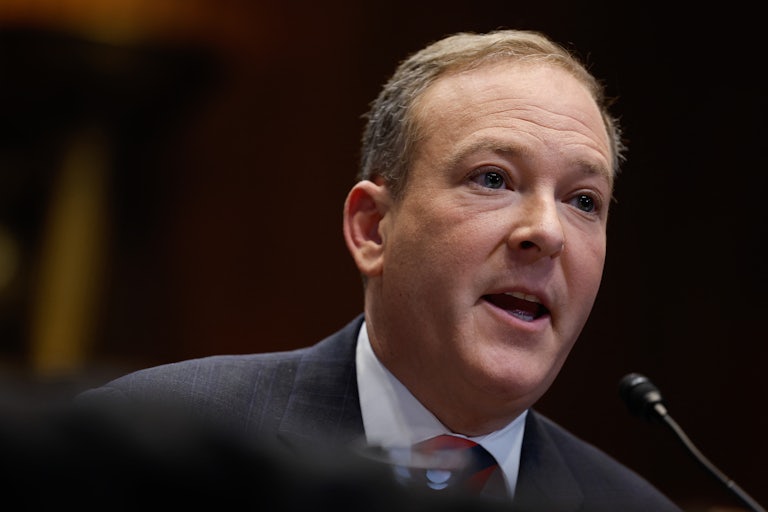
Lee Zeldin, Donald Trump’s nominee to head the Environmental Protection Agency, struggled to answer simple questions about science during his confirmation hearing Thursday.
During his hearing before the Senate Environment and Public Works Committee, ranking member Senator Sheldon Whitehouse said he intended to deliver on a promise to Zeldin to ask “really basic no-tricks questions about climate change,” and Zeldin could barely answer a single one.
“First, as a matter of law, is carbon dioxide a pollutant?” Whitehouse asked.
“As far as carbon dioxide ‘emitted’ from you during that question, I would say no,” Zeldin joked. “As far as carbon dioxide that is emitted in larger masses, that we hear concern about from scientists, as well as from Congress, that’s something that certainly needs to be focused on for the EPA.”
“And as a matter of law, it is a designated pollutant, correct?” Whitehouse pressed.
“Senator, while carbon dioxide is not named as one of the six in the Clean Air Act, the EPA has been treating it as such,” Zeldin replied. Whitehouse affirmed that the Supreme Court had determined that it is a pollutant and ought to be regulated by the EPA. Zeldin appeared to treat that standard, which has been in place since 2007, with the skepticism of a technicality.
But Whitehouse was far from done administering his pop quiz. “What effect—briefly and in layman terms, I know you’re not a scientific expert—what effect are carbon dioxide emissions from fossil fuel combustion having in the atmosphere?” he asked.
“Senator, while I am someone who believes strongly that we should work with the scientists, leaving science to the scientist, the policy to the policymakers, and that we all work together,” Zeldin replied.
Moments earlier, however, Zeldin had promised to “honor” the Supreme Court’s Loper Bright decision, which entails basically the exact opposite by upending a 40-year-old doctrine that required judges to defer to a federal agency (stocked with experts) when determining the meaning of any ambiguous laws that agency should try to enforce.
“I don’t sit before you as a scientist,” Zeldin continued. “Fortunately, at EPA we do have many talented scientists who provide that research. They have that talent to be able to tell us exactly what the metrics are of their research—”
“Just generally, and in layman’s terms, what effects do these carbon dioxide emissions have when they enter the atmosphere?” Whitehouse pressed, his head resting on his hand.
“Trapping—uh trapping heat, senator,” Zeldin said awkwardly.
The ranking member then asked the same question, this time about “methane leakage from fossil fuel production and transport,” to which Zeldin brilliantly replied, “Same.”
“What effect are carbon dioxide emissions from fossil fuel combustion having in the oceans?”
“Well the emissions of greenhouse gases trap, trap heat, Senator,” Zeldin repeated, also offering that “rising sea levels are concerns where I’m from, as well.”
Whitehouse asked if it was correct that the trapped heat is “heating up the oceans.”
“That is what the scientists tell me, Senator,” Zeldin remarked. Always a good sign when someone is bothering to differentiate between what scientists tell you and what is “correct.”
“Have we hit the 1.5 degree risk threshold, and why is that important?” Whitehouse said.
Zeldin said that he would have to “defer to the talented scientists to be able to provide that advice on an ongoing basis.” (The Earth passed that threshold for the first time last year, a dangerous breach climate experts have been warning about for some time.)
Finally, Whitehouse asked Zeldin what he considered to be key climate or oceans “tipping points” that concerned him. Zeldin couldn’t name one, but said that there was concern about rising sea levels from both sides of the aisle, and its potential impact was evident on maps of places all across the country. How comforting.
In his opening statements, Whitehouse had flagged his concerns that Trump intends to pour millions into the pockets of billionaire fossil fuel barons, and that he hoped Zeldin would demonstrate an ability to “follow the science” and economics, as opposed to act as a “rubber stamp for looters and polluters.”
